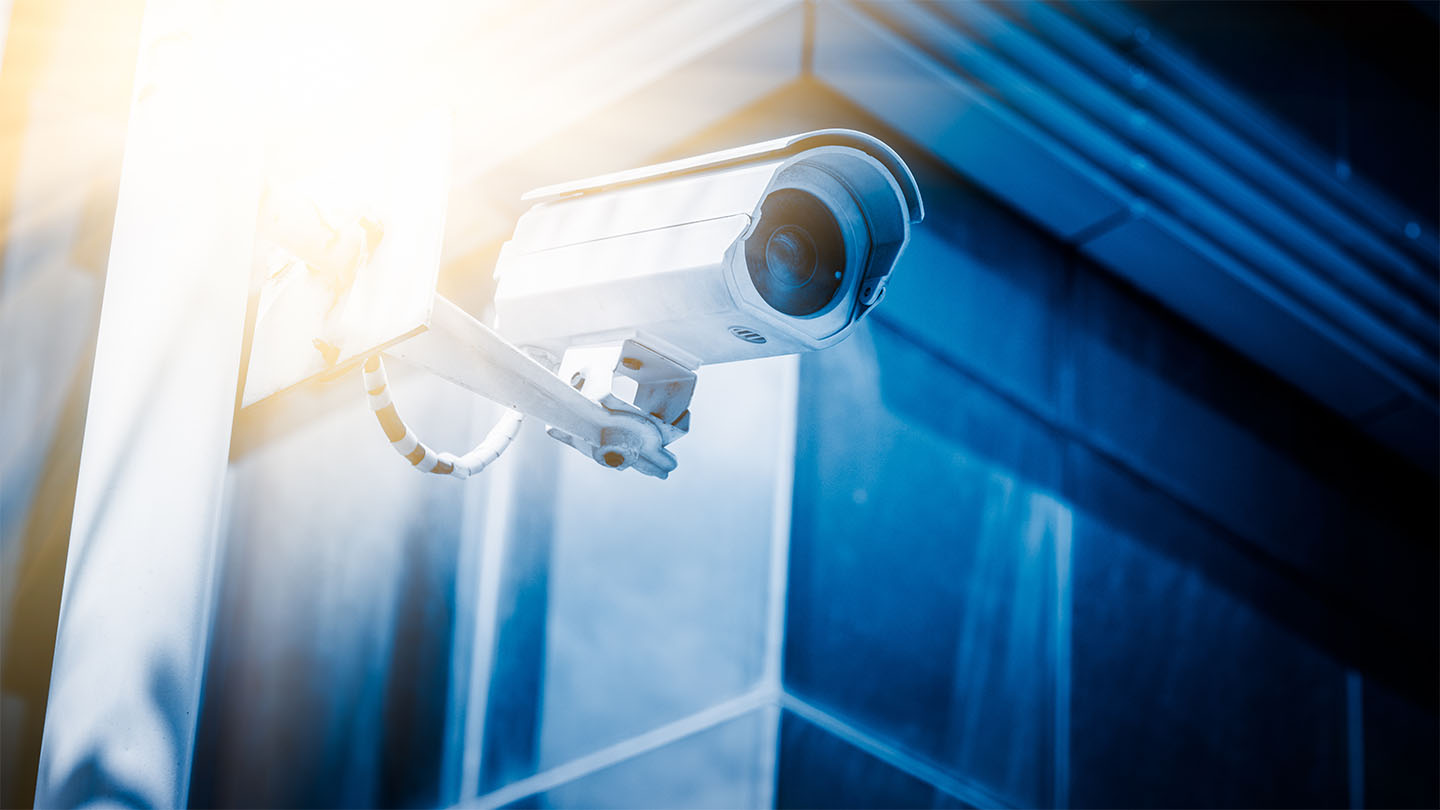Video surveillance systems
Video surveillance for the banking sector
Risk mitigation, crime prevention and resolution as a full service solution

Video surveillance systems
Risk mitigation, crime prevention and resolution as a full service solution

However, thick walls and secure vaults are no longer enough. Nowadays, modern technologies are just as important for ensuring the physical and psychological security of customers and employees. Video surveillance solutions have become indispensable for banks. Roland Keiser, Head of Sales & Business Development at Swisscom Broadcast, knows the key considerations.
Security has always been of the utmost importance to banks, and will remain so in the future. Not only do video surveillance systems help protect customers, employees and property, they also facilitate the prevention and investigation of criminal offences. CCTV cameras provide more detailed visual information for security officers, and their sophisticated analysis algorithms help in the prevention and resolution of break-ins, robberies or fraud. In the event of an incident, the security authorities have convenient access to the relevant video recordings.
Of course! The use of sensor technology equipped with smart algorithms, for instance, can give banks important insights into customer behaviour. Take the following example. In a bid to increase customer dwell time in the bank, a financial institution introduced a library and café in its main hall. Of course, they now want to discover whether these measures have had the desired effect on customer behaviour. Analysis of the sensor data provides insights into the dwell times of visitors in particular areas of the hall and their movement patterns. It is also possible to determine whether the visitor is a woman or man and their approximate age. The data is always anonymised; for compliance with data protection requirements, visitors are not identifiable at any time. This service is offered by Swisscom Broadcast, and I believe that analyses of customer behaviour will become even more important in the future.
Video surveillance systems are continually being enhanced and updated with the latest technologies. The latest generation of cameras are equipped with AI, which is trained to recognise certain image content (object classification). The aim is to trigger an alarm following the detection of a suspicious object such as a weapon.
The Swiss Data Protection Act stipulates that both the retention period and the use of video surveillance must be proportionate and lawful. As a rule, a retention period should be as short as possible. Banks often want to keep the recordings from the cameras in customer areas for 14 days, after which time they are automatically overwritten. In the case of ATMs, the standard retention period is often 90 days because it can take longer for customers to notice and report misuse. The length of time it takes for a bank to discover an offence is therefore a common reference indicator.
Recording time requirements can vary greatly, depending on where the camera is deployed. This is why modern video management solutions allow you to set the recording time for each camera individually.
For many Swiss banks, it is important that any personal customer data they have does not leave Switzerland. If the bank has a cloud strategy under which processing power is provided by a cloud service provider, the latter must ensure that the data cannot be accessed by the United States. Otherwise, the CLOUD Act will apply. The CLOUD Act allows US authorities to access all corporate and customer data from cloud and communications providers, provided that the company is based in the US or is subject to US law. The CLOUD Act stands in stark contrast to the European General Data Protection Regulation (GDPR), whose top priority is protecting personal data. This mismatch can lead to problems. That is why many Swiss banks make sure that the cloud in which their CCTV data is stored is operated exclusively in Switzerland and that the cloud provider is an entirely Swiss-owned company, like Swisscom for example.
Many banks have an on-premise solution within their IT infrastructure for historic reasons. They often operate the CCTV systems themselves, but in these cases require resources such as IT specialists, server infrastructure and premises that are therefore not available for the bank’s core business. A cloud solution offers many advantages for a bank today:
Video security from the cloud is highly secure. All of the camera data is encrypted on the camera’s SD cards and stored in highly secure, redundant data centres. In the event of a loss of connectivity, data storage is still guaranteed at all times.
The highest level of data protection is always guaranteed, even if access is required by the criminal investigation authorities. Data is not transferred on a USB stick, but via a convenient, encrypted, password-protected link to the required recordings that can only be accessed using two-factor authentication. Each user transaction, such as a data export, is written to a separate, protected log file for GDPR compliance. After the defined retention period, the data and access are deleted automatically.
Both models have their merits. Video surveillance as a service (ViaaS) includes much more than camera leasing: With Swisscom at any rate, the customer receives a full service solution. For example, we guarantee that the cameras are always equipped with the latest software updates (security patches) and state-of-the-art technology. ViaaS comprises operation, data storage, corrective maintenance and preventive maintenance, including lifecycle management (evergreen approach).
I believe we are the only company in Switzerland to offer such an end-to-end, full-managed service, which can even extend to taking over the full investment, offering video surveillance as a service at completely budgetable costs. We offer maximum flexibility: each bank is free to decide which parts of the system to outsource to us, and the financing can also be provided by us in full or in part.
